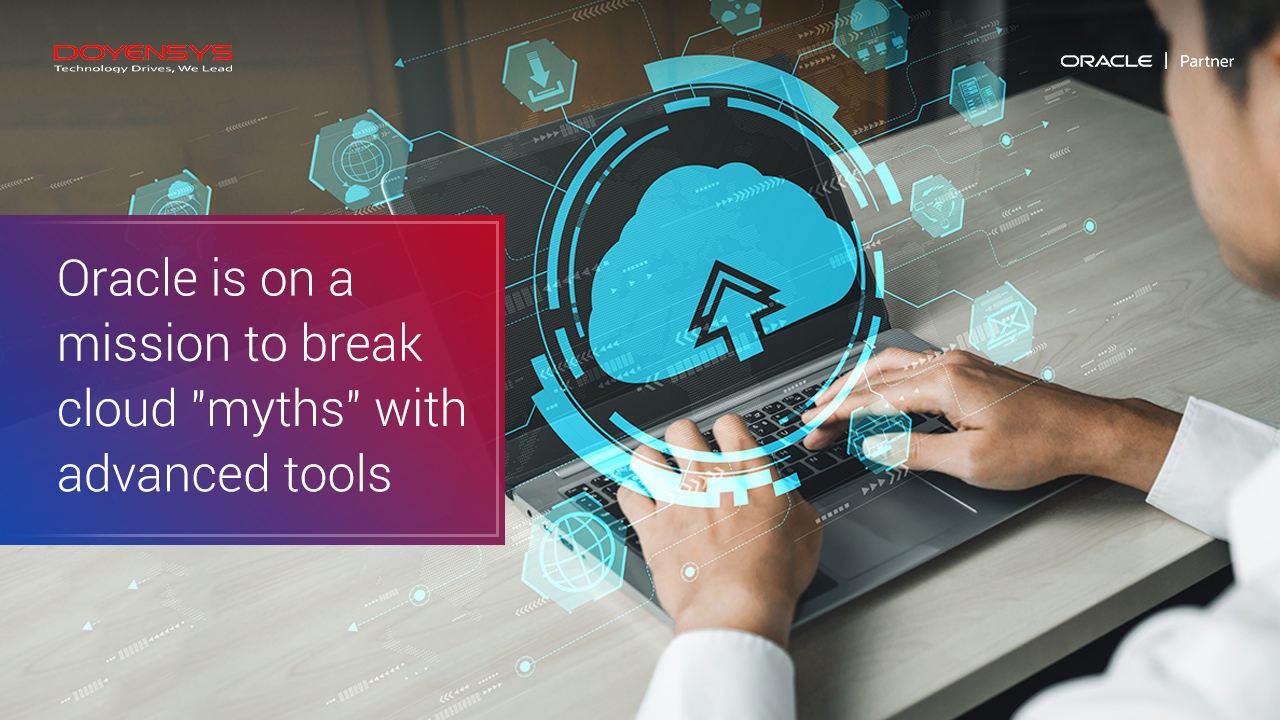
Oracle Platform has updated its IaaS product, Oracle Cloud Infrastructure (OCI), with 11 new tools throughout its compute, storage, and networking services to provide a more flexible, cost-effective infrastructure for businesses.
The majority of the enhancements aim to lower costs and simplify management of modern computing systems to retain current on-premises customers and attract new customers away from cloud industry leaders Microsoft, AWS, and Google.
Customers can now get truly flexible core infrastructure services that optimize resources automatically to fit required specifications and drastically save costs. Oracle infrastructure cloud service revenue increased by more than 60% last quarter, excluding legacy hosting services, and the company wants to keep up the momentum.
OCI is being used by leading worldwide enterprises like Vodafone, Samsung Securities, GoTo, and Cox Automotive to execute a variety of workloads ranging from microservices to AI.
Global cloud adoption continues to increase as business transformations happen and the need for secure remote technology develops. However, several typical public cloud myths prevent firms from fully utilizing the cloud’s capabilities. For example, one popular belief is to reap the benefits of cloud computing.
Consumers must recompile their programs for the cloud and deal with complicated pricing processes. Furthermore, many companies believe that as their operations expand, they will need to make a range of technology selections.
The additional capabilities and tools are a step toward assuring OCI as a flexible solution with the traits of being scalable, simple to use, and cost-effective to run, despite the prevalent cloud fallacies.
 OCI unveils innovations:
OCI unveils innovations:
Users can use OCI Compute on bare metal or virtual machines. Business applications benefit from high-performance OCI bare metal instances, which give customers absolute control and independence.
Customers may tweak and take advantage of computational elasticity to consume what they need with capabilities like flexible memory, sub-core burstable CPU, and preemptible instances, maximizing the total cost of ownership from their workloads.
Customers can get mobility without redesigning their applications by scaling within a computing instance or scaling out by adding new instances, lowering the risk and cost of cloud migration. Dense Compute Instances and Oracle Cloud VMware Solution on AMD are the three new features included in the new release.
Low-latency storage to support compute:
Container Instances are managed services that allow clients to use containers without managing the hosting VM (virtual machine) or Kubernetes Orchestration. Instead, OCI provides the instance with a secure OS image, networking, and storage.
As a result, it eliminates the complexity of setting up an environment when most firms don’t require a complete environment to evaluate a task. Despite containers being a crucial component of modern applications, many organizations lack the internal capabilities to install, configure, and administer a container environment.
Oracle Container Instances, for example, simplify the complexity of maintaining these environments by removing the need to deploy directly on VMs. OCI has added AMD E4. Dense Compute Instances enable low-latency storage with compute to serve database workloads (relational and NoSQL databases).
The new AMD-based instances, known as dense instances, are machines with storage local to the computation for low-latency performance based on the non-volatile memory express (NVMe) standard.
Oracle Cloud VMware Solution on AMD will allow enterprise clients to run workloads on AMD-based 32-, 64-, and 128-core processors and the present ability to run workloads on Intel multicore CPUs.
The business upgraded its storage service with two additional capabilities — Flexible Block Volumes with Performance-based Auto-Tuning and High Availability ZFS — as part of the 11 new features revealed for OCI.
Storage service to offer autoscaling:
OCI Storage offers consumers high-performance and low-cost cloud storage options via object, file, block, and archive storage. From the lowest possible cost to the highest performance, every workload type is served by a single type of block volume, which may be reconfigured on-the-fly without affecting workloads.
You can avail of a reliable solution that can process even the most demanding SLA enterprise apps of up to 95% less than supportive cloud types. The following are a few of the brand-new services and their features:
Flexible Block Volumes with Performance-based Autotuning: This allows customers to automatically adjust the performance characteristics of block storage volumes in response to changing demand. It is a one-of-a-kind capability in today’s cloud, allowing customers to automatically accomplish peak demand while also lowering storage costs when demand is low.
High Availability ZFS: The ZFS file server is packaged in a highly available, automated deployment stack that leverages OCI Block Volumes for raw storage.
OCI networking update eases move to the cloud:
Oracle’s OCI Networking service has also been enhanced with six additional capabilities on par with leading IaaS providers. Flexible Web Application Firewall (WAF), Web Application Acceleration (WAA), and Network Visualizer, as well as Content Delivery Network (CDN) Interconnect, CDN Service, and vTap, are among the capabilities available.
Most of these capabilities allow OCI to catch up to its main IaaS competitors, especially for implementing WAF and web acceleration in tandem with load balancing.
The Network Visualizer gives enterprise customers visibility for troubleshooting and remediation as they migrate workloads to the cloud. Similar services are available from other major cloud providers.
Content delivery updates reduce costs of migration:
Oracle also announced CDN Interconnect and a CDN service, content delivery network-related capabilities. While CDN Interconnect allows customers to establish direct peering connections with select third-party CDN providers to obtain no-cost outbound bandwidth for OCI Object Storage, CDN Service allows customers to distribute digital content to end customers from a nearby location a geographically distributed network.
The launch of these additional OCI services and capabilities is scheduled for 2022. And, if you’re looking for an enterprise-grade Oracle cloud provider, try Doyensys, a technology services company specializing in Oracle solutions.
